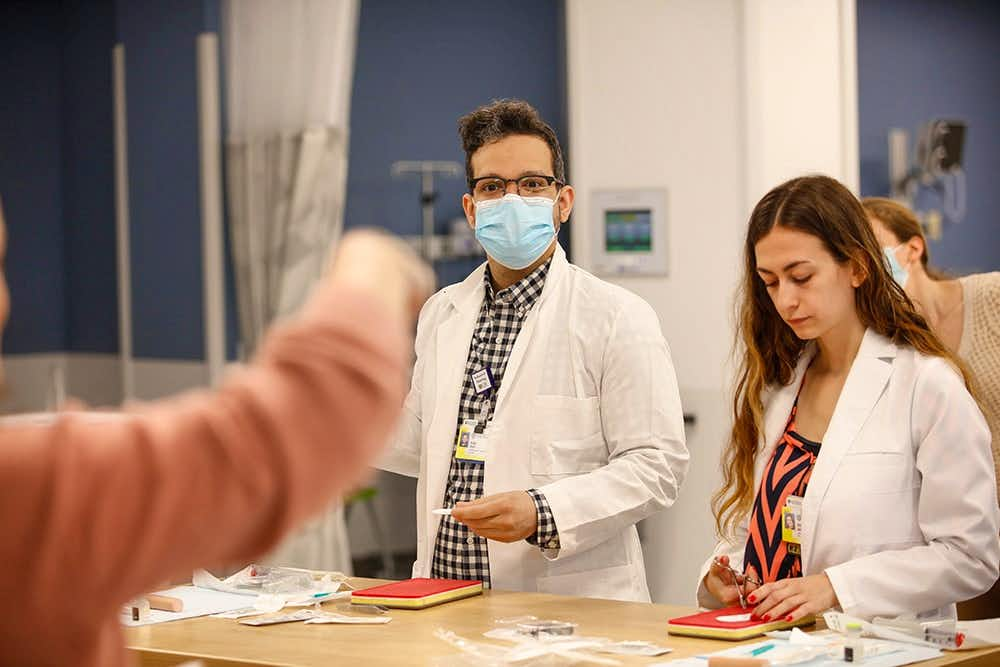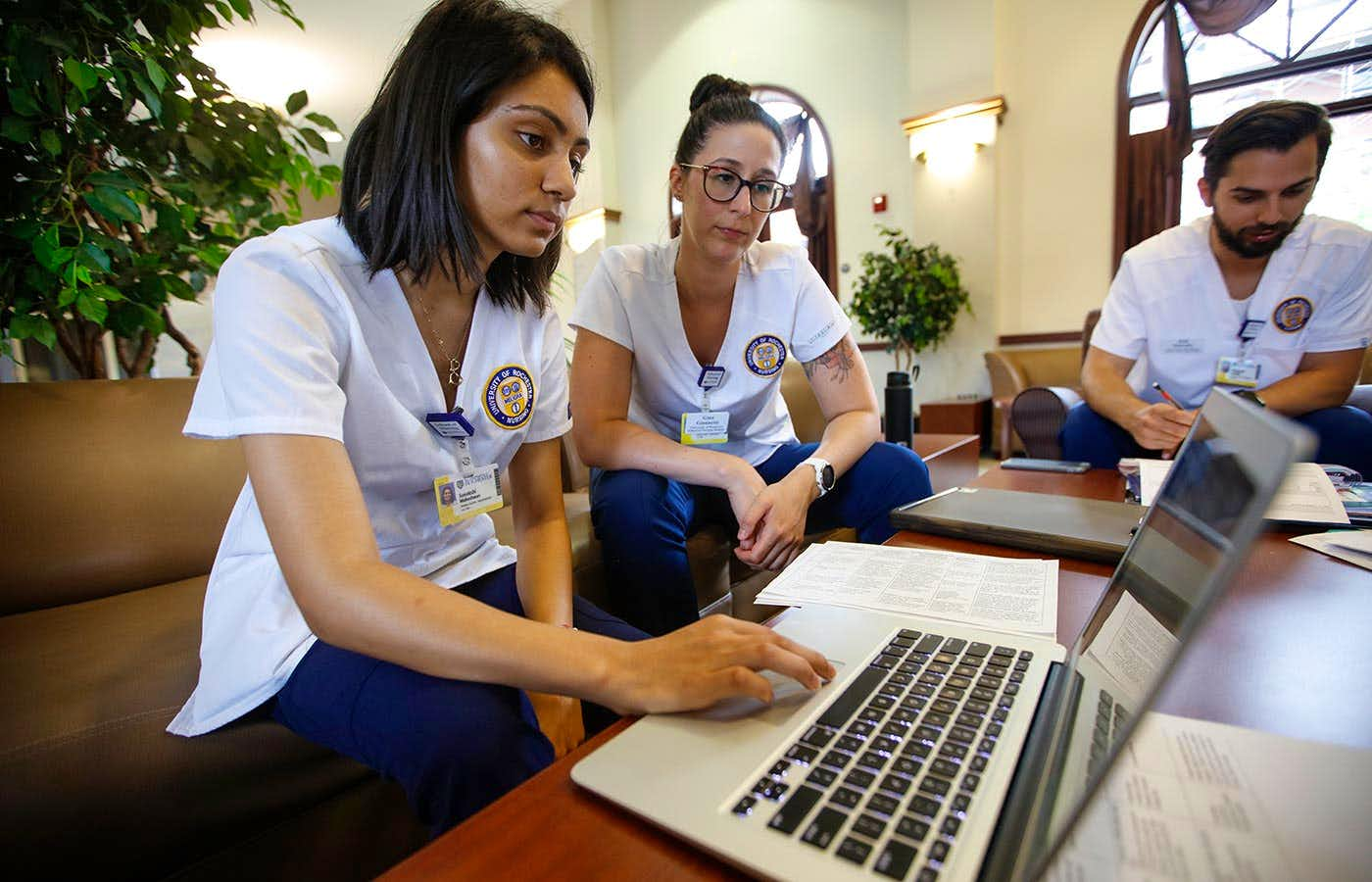Accelerated Master's Academics & Curriculum
Note: We are not currently accepting applications to the Accelerated Master's in Nursing program beyond the Summer 2025 entry term.
The Accelerated Master's in Nursing Programs begin with an immersive year-long experience to earn a second bachelor's degree in nursing. After becoming an RN, students pursue a clinical specialty in one of the nationally-ranked master's nurse practitioner programs.

The University of Rochester School of Nursing has long been a leader in the nurse practitioner role. Ranked as No. 21 in the nation by U.S. News and World Report, our master's programs are among the best in the nation. They include six nurse practitioner specialties and concentrations in leadership in health care systems, clinical nurse leadership, and nursing education.
It was our founding dean, Loretta Ford, who co-developed the the nurse practitioner model in the 1960s. When she became dean in 1972, the nurse practitioner model flourished at the University of Rochester due to the collaborative and progressive environment at the Medical Center and in the community.
Students in this program are accepted to both the Accelerated Bachelor's in Nursing Program (ABSN) and the Nurse Practitioner master's program in the specialty of their choice.
Earn a Bachelor's Degree in Nursing and Pass the NCLEX

Year 1
Earn a Bachelor of Science degree with a major in nursing through the full-time 12-Month Accelerated Bachelor's in Nursing program and become eligible for the professional registered nurse licensing examination.
Earn a Master's Degree as a Nurse Practitioner
Year 2-4
After graduating from the Accelerated Bachelor's in Nursing program and passing the NCLEX, you will begin the master's portion of the program. Depending on specialty, the master’s program requires two to three years of coursework on a part-time to full-time basis.

Specialties
Adult-Gerontology Acute Care
Diagnose and treat adult and older adult patients who are acutely or critically ill, including those who have conditions requiring complex chronic specialty care.
Learn MoreAdult-Gerontology Primary Care
Learn to diagnose and manage common acute and chronic primary health care problems for adults and older adults.
Learn MoreFamily
Provide primary health care for patients from infancy through older adulthood, including women’s health care.
Learn MorePsychiatric Mental Health
Develop expertise in assessment, diagnosis, psychotherapy, and psychopharmacology management of mental health challenges and psychiatric disorders for individuals of all ages.
Learn morePediatric
Provide high-quality health care to children across the health continuum (birth to age 21), from healthy children to those with acute and chronic health problems.
Learn more